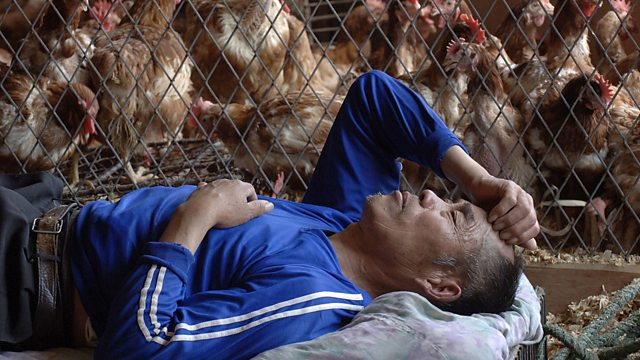01/09/2011
A new strain of birdflu has been identified; what are the real risks to human health? Also, will the ISS be unmanned following a Soyuz rocket crash, Synthetic biology and remembering computing history
BIRDFLU
The World Health Organisation says that bird flu has killed 331 people since 2003, and killed or led to the culling of more than 400 million birds like domestic poultry. The economic damage from that is estimated at $20bn. The warning is alarming, because it says that the risk to humans can't be predicted – but how worried should we be? Ian Jones, who is a Professor of Virology at Reading University in the UK answers that question.
ISS AND THE SOYUZ CRASH
Could the future of manned spaceflight be in doubt following the crash of the Soyuz rocket? At the moment that means only Russia has the capability to ferry people to and from the international space station, and they have just delayed the launch of their next manned mission after an unmanned Soyuz cargo vessel crashed. We're joined by our space expert and Βι¶ΉΤΌΕΔ science correspondent, Jonathan Amos, to explain why the ISS could be left unmanned.
SYNTHETIC BIOLOGY
Synthetic biology is the building of biological systems that don't exist naturally, or the use of engineering to redesign life. The field is exciting scientists interested in learning how to harness the power of the living world, using synthetic bacteria to make biofuels for example, or to create new medical treatments. New researchers, just published in the journal Science seem to show that synthetic biology has reached a new level of sophistication. Roland Pease from our Βι¶ΉΤΌΕΔ science team has been following this, and joins us on the programme.
COMPUTING HISTORY
Tony Sale, the engineer who led the rebuild of Colossus, the first modern computer has died aged 80. The massive project to recreate the code-cracking Colossus was the pinnacle of a career built around electronics and computers. Tony was also behind the campaign to save Bletchley Park, where Colossus aided Allied code-cracking efforts during World War II. At Bletchley Park he also founded the National Museum of Computing to help preserve the UK's ageing computers. Joining us on Science in Action is Kevin Murrell, a trustee and director of the Museum and friend of Tony Sale.
Last on
Broadcasts
- Thu 1 Sep 2011 18:32GMTΒι¶ΉΤΌΕΔ World Service Online
- Fri 2 Sep 2011 03:32GMTΒι¶ΉΤΌΕΔ World Service Online
- Fri 2 Sep 2011 10:32GMTΒι¶ΉΤΌΕΔ World Service Online
- Fri 2 Sep 2011 15:32GMTΒι¶ΉΤΌΕΔ World Service Online
- Sat 3 Sep 2011 06:32GMTΒι¶ΉΤΌΕΔ World Service Online
- Sun 4 Sep 2011 11:32GMTΒι¶ΉΤΌΕΔ World Service Online
- Sun 4 Sep 2011 22:32GMTΒι¶ΉΤΌΕΔ World Service Online
Podcast
-
![]()
Science In Action
The Βι¶ΉΤΌΕΔ brings you all the week's science news.


